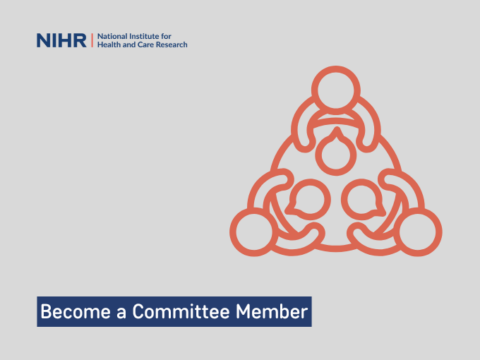While remote and hybrid working models are becoming more prominent, team members still value the importance of spending time face to face. However, often due to complex logistics and cost, getting people together may only be possible on rare occasions. So, it’s important to get the most out of these days and consider their design so that there is great value and enjoyment for everyone.
At the end of this webinar participants will:
- Consider the purpose of their face-to-face team day and as a result create an informed agenda.
- Reflect on how to create a thread throughout the day that ensures cohesion.
- Understand how to create engagement and bring energy to the room through activities.
- Discuss inclusive tools to use if ‘problem solving’ or ‘conflict resolve’ are on the agenda.
- Consider inclusion and accessibility throughout the day.
- Know the importance of evaluating the day and following up on any learning or action points that arise.
Visit the NIHR YouTube Channel for more great support content.
Looking for some further advise? Read below to discover the key ingredients for organising a successful team day that fosters camaraderie, enhances team dynamics, and boosts morale.
Let’s dive into the strategies and tips that will help you create a memorable and impactful event for your team.
- Define Objectives – Begin by clearly defining the objectives of the team day. Are you aiming to build stronger relationships, enhance problem-solving skills, boost creativity, or improve communication? Understanding your goals will shape the activities and structure of the day, ensuring alignment with your team’s needs.
- Involve the Team – To make the team day more meaningful, involve team members in the planning process. Seek their input, ideas, and preferences through surveys or brainstorming sessions. By allowing them to contribute, you’ll enhance their engagement and sense of ownership, resulting in a more successful event.
- Choose the Right Venue – Select a venue that suits your objectives and the size of your team. Consider a location that provides both indoor and outdoor spaces, promoting flexibility in activity choices. Ensure the venue offers the necessary amenities, such as meeting rooms, audio-visual equipment, and catering options to facilitate a smooth and comfortable experience.
- Plan Engaging Activities – Craft a diverse range of activities that encourage collaboration, problem-solving, creativity, and fun. Mix structured team-building exercises with more relaxed, social interactions. Consider activities like escape rooms, treasure hunts, workshops, or even outdoor sports. Tailor the activities to match your team’s preferences and objectives.
- Foster Collaboration – Promote cross-functional collaboration and communication during the team day. Introduce activities that require different team members to work together, allowing them to understand each other’s strengths and perspectives. Encourage active listening, respect, and open dialogue to strengthen relationships and break down silos.
- Include Skill Development – Make the team day an opportunity for skill development. Offer workshops or guest speakers who can provide valuable insights on topics such as leadership, conflict resolution, research methods, time management, or innovation. These learning experiences will not only enhance individual growth but also contribute to the team’s overall effectiveness.
- Create Networking Opportunities – Designate time for networking and socialising. Arrange informal settings, like lunches or evening gatherings, where team members can interact in a relaxed environment. These moments foster connection, build relationships, and encourage collaboration beyond the formal team day.
- Celebrate Achievements – Recognise and celebrate individual and team achievements during the team day. Highlight the progress made, milestones achieved, and collective successes. Acknowledgment boosts motivation and reinforces a positive team culture, inspiring members to strive for continued excellence.
- Evaluate and Follow-Up – After the team day, conduct an evaluation to gather feedback on the event. Learn from the strengths and weaknesses of the day to improve future team activities. Additionally, establish a follow-up plan to maintain the momentum and integrate the lessons learned into the team’s ongoing development.
- Sustain the Team Spirit – Keep the team spirit alive beyond the team day by reinforcing the values and lessons learned. Incorporate elements from the event into day-to-day operations, such as regular team-building activities or ongoing communication initiatives. Continually nurture the connections and bonds established during the team day.
Conclusion – Organising a successful team day requires careful planning, thoughtful consideration of objectives, engaging activities, and a focus on team dynamics. By following the strategies outlined in this guide, you’ll create an extraordinary experience that brings your team closer, strengthens their skills, and sets the stage for ongoing success. Embrace the opportunity to inspire, motivate, and unite your team, and watch as the impact resonates long after the event has ended.






